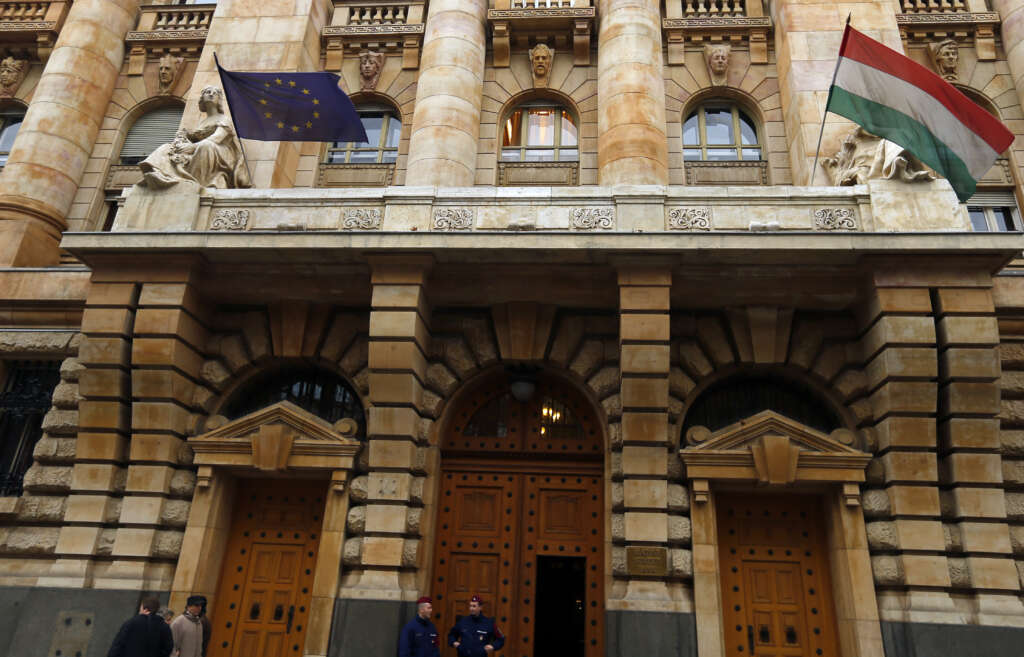
By Gergely Szakacs and Krisztina Than
BUDAPEST (Reuters) – The National Bank of Hungary raised its base rate by 100 basis points to 4.4% on Tuesday, the biggest hike in the rate since 2008, saying rising energy costs and the war in Ukraine had fuelled inflation risks.
The bank, which raised its inflation forecasts for both 2022 and 2023, said average inflation could rise to 7.5%-9.8% this year and inflation would come back to the bank’s 3% target only in the first half of 2024.
Economic growth will likely be slower than expected this year with the war hitting growth directly through disruption to international supply chains and trade channels and through rising commodity prices, it added.
“The Russia-Ukraine war has posed a much higher risk than usual to the outlook for inflation. The increase in inflation risks warrants a further tightening of monetary conditions,” the Monetary Council said in a statement.
The rate increase was bigger than analysts’ median forecast for a 75 bps hike in both its base rate and the overnight deposit rate in a Reuters poll last week. The bank hiked all interest rates by 100 basis points.
The bank said strong domestic demand may partly offset the adverse effects of the Russia-Ukraine war on growth but exports are expected to make a smaller-than-expected contribution to GDP in 2022 because of supply chain disruptions.
“Depending on the duration of the war and the policy of sanctions, GDP is likely to expand at a slower rate than expected, by 2.5%-4.5% percent in 2022,” the bank said.
Hungarian headline inflation continued its surge in February, hitting 8.3%, despite government-imposed price caps on some basic foods, fuel and energy.
Strong price pressures across Central Europe have been exacerbated by the war in Ukraine, which sent the region’s currencies — including the forint — to record lows versus the euro earlier this month.
The forint firmed to 371.27 from 371.65 on the rate announcement. It has recovered from record lows of 400 this month, helped by the NBH’s pledge that it would use all tools at its disposal to shore up the markets.
Analysts said the inflation risks clearly warranted further rate hikes.
“We think that the recent deterioration in the inflation outlook argues in favour of further large hikes,” Liam Peach at Capital Economics said in a note.
“We expect the base rate to rise above 6% and short-term interest rates towards 8% in the coming months, but there’s a risk of rates rising more quickly if the forint suffers fresh large falls.”
(Reporting by Gergely Szakacs and Krisztina Than; Editing by Raissa Kasolowsky and Alison Williams)


